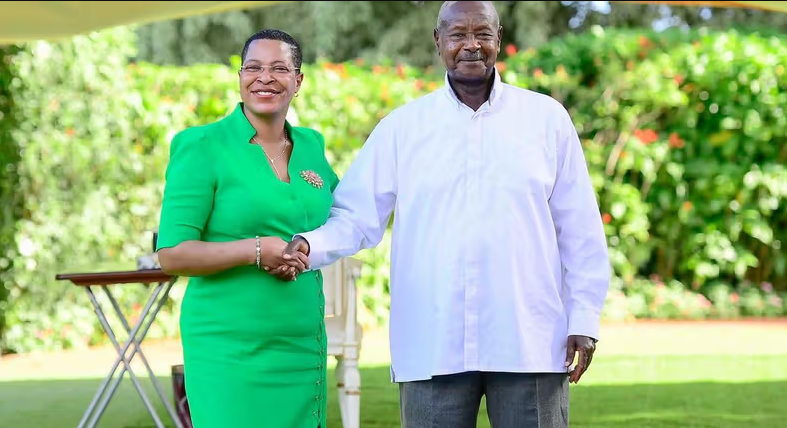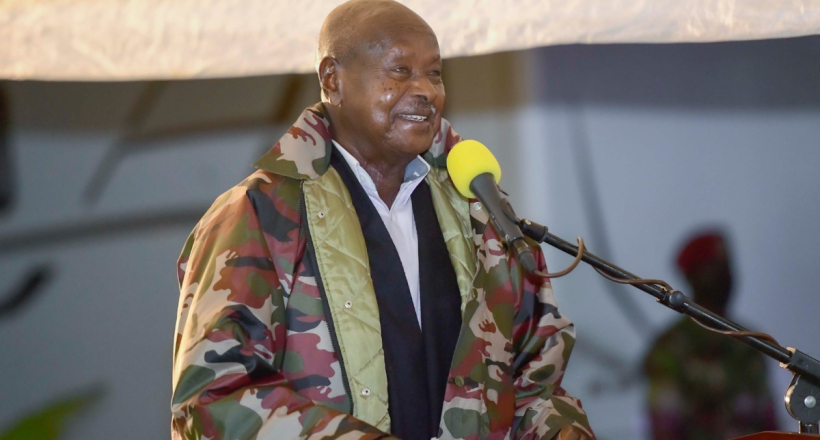A section of young Ugandans have started telling President Yoweri Museveni that they are not his grandchildren. This declaration comes as a response to his recent handling of anti-corruption protests and his, let’s say, not-so-grandfatherly approach to dissent.
It appears that the 79-year-old leader, who’s been at the helm since 1986, is facing some serious backlash from the young adults of Uganda. This group, which isn’t exactly thrilled about being treated like the president’s little “muzzukulu” (grandchildren), is demanding that he take action against high-profile corruption and release at least 104 citizens who’ve been caught up in this week’s anti-graft protests.
President Museveni, who seems to think the young folks are his personal brood, recently praised security officers for arresting over 100 protesters who had gathered in Kampala to march to Parliament. His comments, made with the sort of disdain usually reserved for undercooked matoke, condemned the protesters as being “foreign funded to do bad things in Uganda.”
The young Ugandans, meanwhile, are having none of it. They’re firing back with messages that clearly state they’re not looking for a grandfatherly figure but rather a leader who addresses the rampant corruption that’s got Uganda sitting at a dismal 141 out of 180 countries on Transparency International’s corruption index.
Jacky Kemigisa, a social media commentator, accused Museveni of trying to play the old African leader’s trick of creating a false sense of kinship. She pointed out that this tactic is nothing more than a distraction from his own failures. Kemigisa, who clearly has no time for Museveni’s paternalistic act, added that the president is trying to shift blame onto foreign forces while conveniently forgetting his role in implementing neoliberal policies that have decimated welfare services.
International Ugandan sports journalist Aisha Nassanga joined the fray, using her platform to let Museveni know that calling them “muzzukulu” doesn’t cut it. “We know our grandparents, and they don’t behave like this,” she posted, presumably with an eye-roll.
Charles Gava, another discontented citizen, emphasized that “grandparents don’t tear gas, maim or imprison their bazzukulu.” Annah Ashaba, too, added her voice to the chorus, saying, “How many times should we tell you that we are not your grandchildren? We reject that infantilization.”
Defending the marches organized by the youth, which were inspired by the anti-tax protests of Kenyan Gen Zs, author Sakwah Ngoma accused Museveni of being an iron-fisted dictator. “It’s ironic,” Ngoma said, “that a man who took power through the back door under the pretense of liberating Uganda from military rule has become a dictator himself.”
The controversy has sparked a flurry of activity on X (formerly Twitter), where Ugandans are demanding the unconditional release of the anti-corruption protesters. Museveni, in his usual grandpa-style wisdom, had warned the protesters that they were “playing with fire” and should have heeded his advice.
The charges against the arrested protesters mostly revolve around being a “common nuisance” and “idle and disorderly,” with comedian Obed Lubega aka Reign facing an additional charge of “attempt to commit hate speech.” Museveni has promised that the “very bad things” orchestrated by foreign agents will be revealed in court, which should make for some riveting courtroom drama.
Museveni’s term has been marked by a mix of military strategy and political maneuvering, often referring to Ugandans as his bazzukulu and himself as Jajja (grandpa). Despite his long reign and numerous admissions about the corruption plaguing his administration, he claims to be committed to the fight against graft. However, his offer to join the fight against corruption if it was a “patriotic, peaceful demonstration” sounds a bit like someone who’s promised to do the dishes but then conveniently forgets to.




















